As the Lower Mainland marks the 43rd anniversary of a construction tragedy, those in attendance sounded a new alarm.
A recent WorkSafeBC report on work-related death statistics indicates 2022 was the deadliest year in decades for British Columbia construction workers. Fifty-four people died, 28 due to trauma and 26 due to exposure to harmful materials, representing a 74 per cent increase from the average number of annual construction worker deaths over the previous three decades.
BC Building Trades executive director Brynn Bourke hosted the memorial in Vancouver on Jan. 5 in memory of the four construction workers killed on Jan. 7, 1981 when a fly form came off the Bentall IV building and sent Gunther Couvreux, Brian Stevenson, Donald Davis and Yrjo Mitrunen to their deaths 36 floors below. She addressed the new and jarring fatality statistics directly in her opening statements.
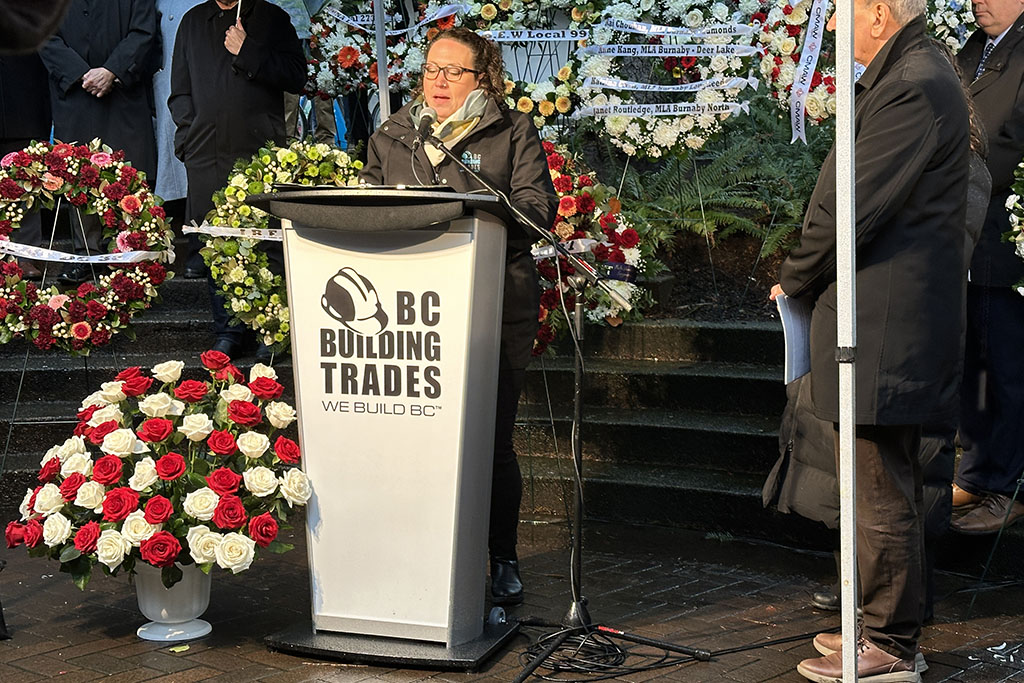
ŌĆ£I never did, in preparing these remarks, find the words to convey the frustration, the disappointment, the anger to be standing here talking about 54 deaths. Instead, I wanted to put it in front of you visually,ŌĆØ she said gesturing towards a flower arrangement next to the podium similar to the other memorial wreaths at the event, but composed of white roses for those who died of exposure and red roses to symbolize those who died from trauma.
In remarks to the Journal of Commerce, Bourke elaborated on her feelings regarding the WorkSafeBC findings.
ŌĆ£We hold this memorial annually and usually we see that very common pattern of about 30 construction worker deaths each year. ItŌĆÖs something thatŌĆÖs always disappointing and very upsetting but you prepare yourself for it. When we got the news it was not 30, 35, 40 but 54 it is shocking. It is surprising and it really lit a fire in us as to how it could be this bad in one calendar year. How could this happen?ŌĆØ
Bourke added deaths due to asbestos exposure were both horrible and predictable ŌĆ£and those numbers are very high, but the trauma numbers are also extraordinarily high, and when you dig deeper into that you see a number of deaths from falls, electrocution, drowning, roof collapse, crane collapse, poor ventilationŌĆ”all deaths that are entirely preventable.ŌĆØ
Former BC Building Trades head and long-time asbestos reform advocate Lee Loftus was also at the event and pointed to new asbestos certification regulations that came into effect Jan. 1 as a sign of progress but said further changes must be made.
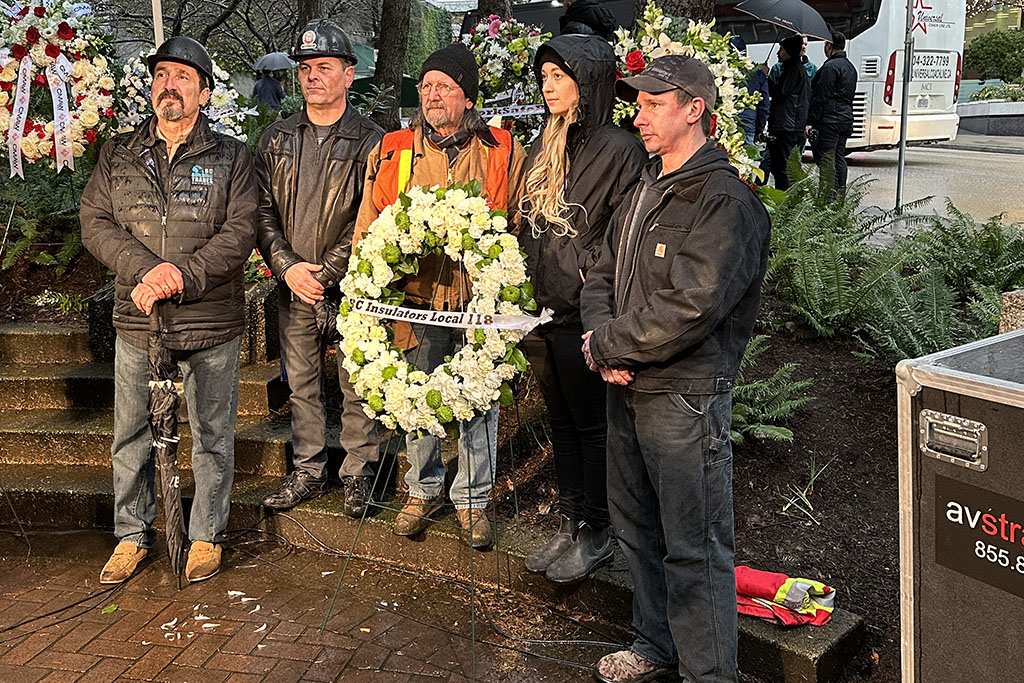
ŌĆ£There still are many holes and many things to do. IŌĆÖm not sure WorkSafeBC, the B.C. Ministry of Labour and industry have gone far enough. We still havenŌĆÖt taken care of asbestos from cradle to grave. WeŌĆÖre managing it in the middle and trying to take care of where exposures are and thatŌĆÖs great news, but IŌĆÖm not sure that piles of asbestos will stop being found in schoolyards, laneways and in parking lots,ŌĆØ Loftus said.
ŌĆ£IŌĆÖm not sure weŌĆÖve addressed the underground economy (of asbestos removal) and I want to see what this turns out to be. As we look forward, IŌĆÖm optimistic, but I want to be flexible and make sure we find solutions to any of those holes that arise.ŌĆØ
Mike Davis, the son of Bentall victim Donald Davis, spoke at the event and warned government and industry that a push for quicker affordable housing could result in similar neglect for safety that claimed the life of his father and the three other carpenters 43 years ago.
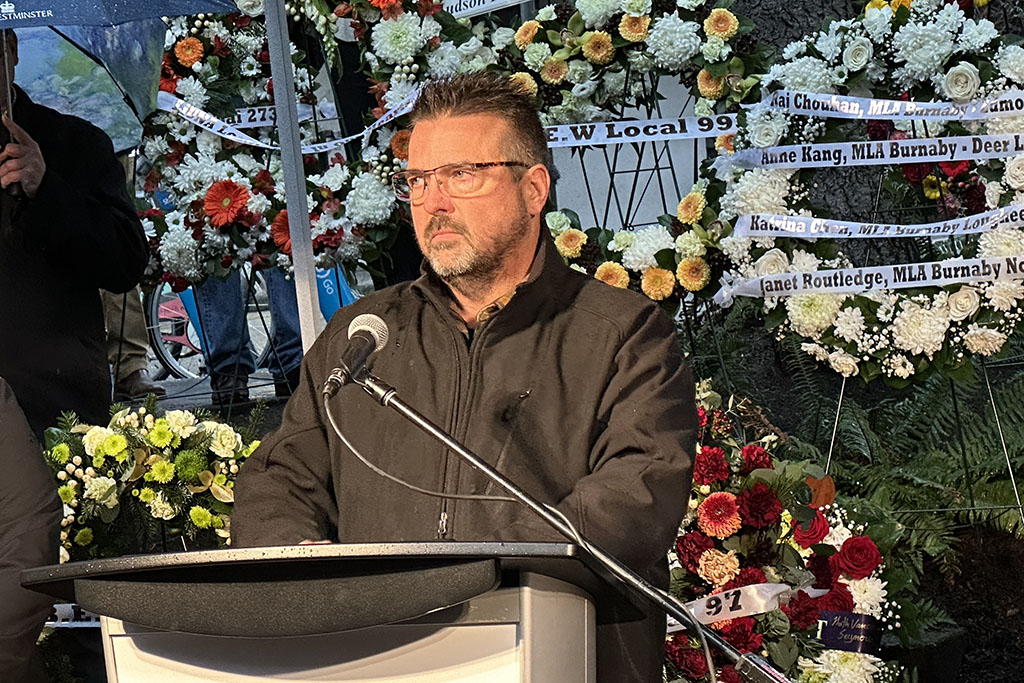
ŌĆ£During the fall legislative session a suite of housing legislation was introduced to deliver more homes for people faster in every part of B.C. While I know it isnŌĆÖt meant to disregard health and safety, it can be misinterpreted by many and safety can be compromised,ŌĆØ Davis said.
Bourke echoed DavisŌĆÖs concerns and stressed the importance of a safety focus as the industry charges ahead to build new homes.
ŌĆ£People forget that construction workers are human beings. We always talk about, ŌĆśWe need to build infrastructure now, we need to build faster,ŌĆÖ and thereŌĆÖs a lot of pressure on our industry to build, build, build. People donŌĆÖt think about the fact that there are 200,000 people that are in our industry, loved by families, love by co-workers who are working in incredibly dynamic environments,ŌĆØ she said. ŌĆ£Safety has to always be at the forefront. It must take precedence over any other imperative.ŌĆØ


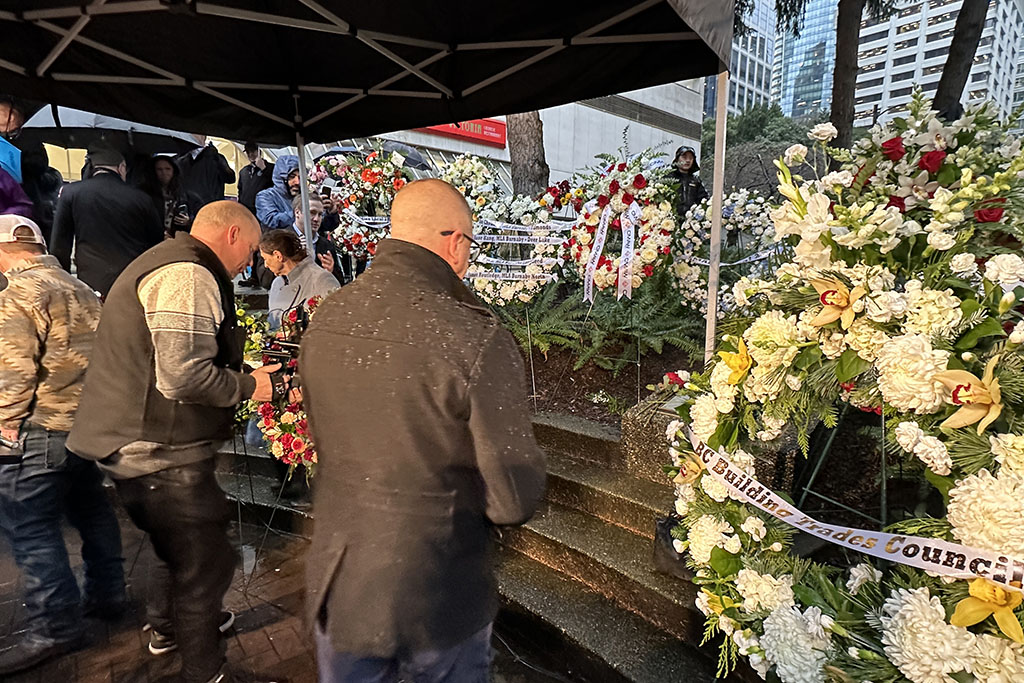


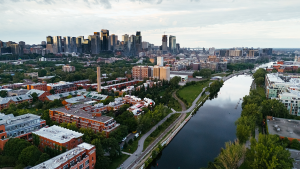
Recent Comments
comments for this post are closed